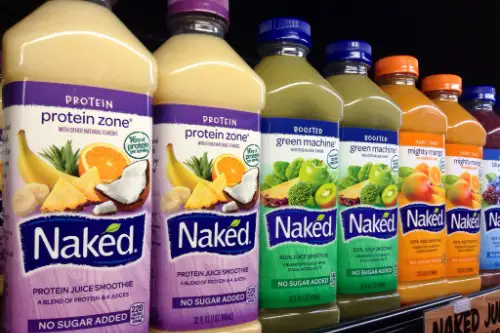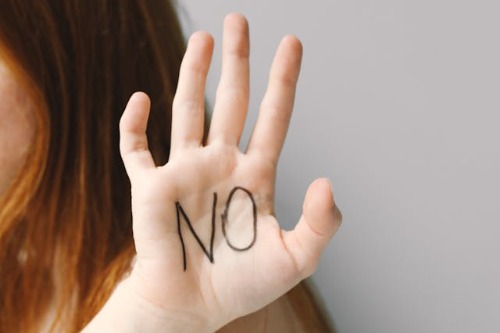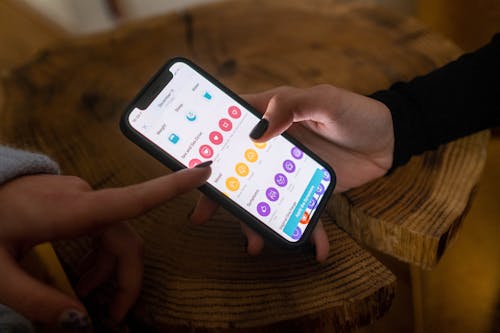1. Manifestation Journaling

What started as dreamy Pinterest boards and TikTok morning routines has turned into full-blown workshops with $300 ticket prices. Manifestation journaling — the idea that writing down your goals can “attract” them — blew up thanks to influencers who swore by scripting and vision boards. The technique now anchors retreats in Sedona and Zoom classes promising abundance. It’s become more than a habit; it’s a spiritual product.
The logic? That your mindset shapes your reality — a philosophy drawn from the Law of Attraction. It’s not new, but Instagram gave it glossy filters and a cult following. What used to be a bullet journal and a good pen is now bundled with “quantum coaching.” You’ll even see manifestation planners sold as part of $500 mentorship programs.
2. Cold Plunging

At first, it was just viral footage of people dipping into freezing lakes for “resilience.” Then TikTok influencers started showing off DIY setups in backyard barrels, claiming massive mental and physical benefits. Now, there are entire businesses dedicated to teaching the cold plunge lifestyle — with seminars, subscriptions, and certified coaches. Wim Hof may have popularized the idea, but social media made it a personality trait.
What’s wild is how fast this transitioned from daredevil challenge to health gospel. Wellness influencers now teach courses on proper breathing, mindset, and technique — for a fee, of course. Cryo tubs sell out online, and some gyms even offer “guided plunges.” The cold is now a curriculum.
3. Digital Decluttering

Marie Kondo made physical tidying famous, but digital decluttering got its glow-up on YouTube and TikTok. Creators started filming “phone detox” weekends and app purge walkthroughs, framing it as mental clarity through digital minimalism. Now, there are paid seminars — both in person and online — that promise to teach you how to reclaim your attention span. The irony? You probably found them on Instagram.
This lifestyle hack hits a nerve because everyone’s overwhelmed by screen time. So the idea of designing a calmer, less chaotic digital life is appealing. Workshops often include inbox zero techniques, intentional scrolling practices, and device-free habit loops. What began as a Sunday reset vlog now comes with a workbook and a $129 price tag.
4. Soft Mornings

“Soft girl” aesthetics on TikTok quickly evolved into full-blown morning rituals of stretching, sipping lemon water, and avoiding cortisol spikes. The soft morning concept went viral as a form of gentle, slow-living self-care. Now, there are coaching programs promising to help women design the “perfect feminine morning” — usually bundled with lifestyle coaching. You’re not just buying time management; you’re buying a vibe.
Courses often include customized wake-up routines, low-stimulation diet suggestions, and affirmations to start the day. It’s all about curating your first hour like a wellness influencer’s flat lay. What started as free “GRWM” (Get Ready With Me) content is now a monetized morning identity. And somehow, waking up slowly became a $400 niche.
5. The 75 Hard Challenge

This ultra-discipline challenge gained steam after circulating on Facebook and TikTok as a “mental toughness” test. Created by Andy Frisella, it involves 75 days of strict rules — two workouts a day, no alcohol, a diet, daily progress photo, and reading 10 pages. Social media turned it into a badge of honor, with people documenting every step in real-time. Today, there are coaching programs, community memberships, and spin-offs like 75 Soft.
It’s now an entire micro-industry that monetizes the structure and intensity. Coaches charge to help participants “stay accountable” through the 75-day stretch. Some even offer corporate versions for “executive mental grit.” What started as a PDF went full seminar.
6. Capsule Wardrobes

Originally a minimalist fashion trick from blogs and early Pinterest boards, capsule wardrobes were revived on TikTok with hashtags like #closetreset and #styleoverhaul. People loved watching others purge fast fashion and build 30-item seasonal wardrobes. Then came the monetization — personal stylists, downloadable planners, and full-on Zoom courses guiding you through it. Suddenly, dressing intentionally became a revenue stream.
These seminars promise to help you find your “signature look” while saving time and money. But they often come with worksheets, color analysis, and price tags nearing $200. The appeal lies in simplicity, but the learning curve has been steeply priced. It’s slow fashion turned elite class.
7. Gut Health Protocols

“Hot girls have IBS” may have started as a meme, but gut health exploded as a wellness obsession on TikTok and Instagram. Creators posted what they ate, what probiotics they took, and how they “healed their gut,” racking up millions of views. Now, practitioners offer structured gut-reset programs costing anywhere from $250 to $1,200. These include food lists, supplements, and weekly group calls.
It’s not just diet advice — it’s a lifestyle built on elimination challenges and microbiome optimization. The original hacks were green smoothies and ginger shots. Now, it’s a funnel into a six-week course with a gut-healing workbook. What was once a quirky biohacker tip is now a booming coaching niche.
8. Money Mindset Coaching

Once limited to budget planners on Etsy and debt-free journey threads on Reddit, money mindset coaching took off on social media. Influencers reframed personal finance with affirmations like “money flows to me easily” and gratitude journals for expenses. Now, full-scale programs charge hundreds to “retrain your beliefs about money.” The line between financial literacy and manifestation blurred fast.
These coaches promise to help clients break scarcity cycles and “align with abundance.” Many blend woo-woo ideas with budgeting techniques. It’s become its own niche: not quite therapy, not quite investment advice, but a little of both. And it’s generating big returns — for the coaches, at least.
9. Notion Life Design

Notion started as a sleek productivity tool for students and tech workers, but YouTubers and TikTokers turned it into a life-design platform. Templates for tracking habits, journaling, meal planning, and even “ideal day scripting” went viral. Now, people sell Notion life-coaching packages that include templates, courses, and accountability sessions. If you’ve seen an aesthetic dashboard with pastel tabs, you’ve seen the lifestyle brand at work.
Creators offer everything from custom Notion setups to $500 productivity bootcamps. It’s a crossover between tech optimization and personal development. What used to be a free app became a vision board with a business model. All you need is a login — and your credit card.
10. Boundaries Coaching

The phrase “boundaries are sexy” trended on TikTok, thanks to therapy-speak bleeding into everyday life. What began as empowerment posts about saying “no” has turned into coaching programs teaching people how to establish and enforce personal boundaries. Some of these workshops are led by therapists, others by certified coaches with huge followings. Either way, people are paying to learn how to hold their ground.
The emotional labor of relationships — romantic, professional, or familial — is a hot topic online. So it makes sense that boundary-setting became a marketable skill. Courses walk through scripts, roleplay, and mindset reframing. What started as a tweet is now a $349 course with bonus modules.
11. Habit Stacking

James Clear introduced it in Atomic Habits, but TikTok turned “habit stacking” into a trend with aesthetic to-do lists and morning montages. Influencers began layering new habits on top of existing ones — like doing squats while brushing teeth or listening to audiobooks while walking. Now, habit coaches sell blueprints and seminars teaching people how to “optimize their routines for dopamine.” It’s part science, part branding.
Workshops often include time-blocking lessons, habit tracker setups, and neuroscience-lite explanations. The technique is effective, but the packaging is what sells. What started as a self-improvement hack now has branded planners and $150 mini-courses. All for habit change that once fit on a sticky note.
12. Cycle Syncing

Cycle syncing — tailoring your diet, exercise, and work habits to your menstrual cycle — gained serious traction thanks to creators on Instagram and YouTube. Women shared how they optimized their lives by honoring hormonal shifts, often using apps or color-coded calendars. Now, experts run full cycle-syncing programs, some complete with meal plans, coaching, and hormone panels. Wellness brands have absolutely cashed in.
These paid programs promise less PMS, more productivity, and “alignment with your feminine energy.” The practice is rooted in real hormonal science, but social media amplified it into a lifestyle. Courses range from $99 ebooks to $800 8-week coaching tracks. And all of it came from a viral post about period fatigue.
This post 12 Lifestyle Hacks That Were Born on Social Media and Now Exist as Paid Seminars was first published on American Charm.


